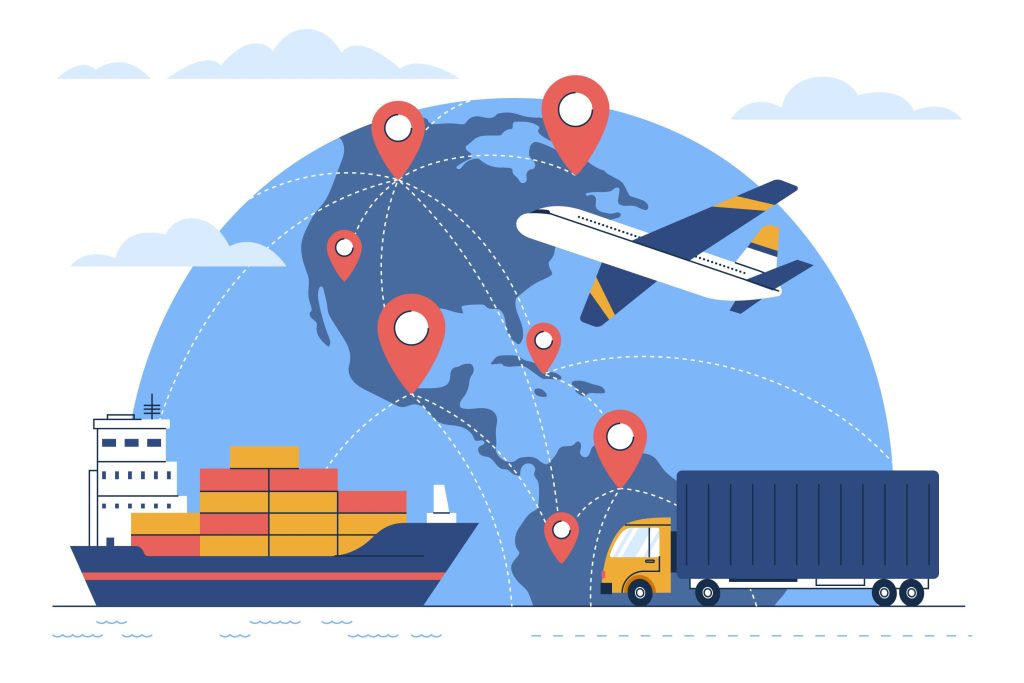AI in Supply Chain Management: Optimization & Case Studies
The Role of AI in Modern Supply Chain Optimization Artificial Intelligence (AI) is transforming global supply chains at an unprecedented pace. Once dominated by manual operations and static forecasting models, modern supply chains are now increasingly intelligent, agile, and data-driven. From predicting customer demand with remarkable accuracy to dynamically adjusting inventory and strengthening supplier relationships, AI in supply chain management is not just a technological upgrade—it’s a strategic necessity. In this guide, we explore how AI is reshaping supply chains, enhancing operational efficiency, and creating new standards for decision-making and resilience. Introduction to AI in Supply Chains AI’s rise in the supply chain ecosystem is fueled by the demand for speed, precision, and adaptability. As globalization, e-commerce, and customer expectations evolve, companies can no longer rely solely on traditional supply chain models. Supply chain optimization consulting is evolving with AI tools that integrate data from diverse sources—enterprise resource planning (ERP) systems, customer databases, weather reports, market trends—and translate them into actionable insights. Machine learning (ML), natural language processing (NLP), computer vision, and robotic process automation (RPA) are among the AI technologies enabling companies to improve predictive analytics in supply chain, mitigate risks, and reduce operational bottlenecks. The result is a supply chain that can anticipate disruptions, respond in real-time, and optimize itself continuously. Predictive Analytics for Demand Forecasting One of the most valuable applications of AI in supply chain management is predictive analytics for demand forecasting. Accurate forecasting is the cornerstone of business optimization consulting, influencing procurement, production, distribution, and sales. Traditional models rely heavily on historical data and assumptions. AI for demand forecasting, however, brings real-time, multivariate analysis into the mix. AI-driven demand forecasting systems consider: Seasonality and historical sales data Consumer sentiment analysis from social media and reviews Market trends and economic indicators Weather patterns and geographic data Promotions and pricing changes This fusion of data allows businesses to generate highly accurate demand forecasts, reducing stockouts and overstock situations. For example, global retailers like Walmart and Amazon use AI in logistics to anticipate buying behaviors down to the SKU level across regions and seasons. By minimizing guesswork, AI-driven inventory management helps businesses make confident procurement decisions, improve customer satisfaction, and reduce carrying costs. AI-Driven Inventory Management Inventory management is a delicate balancing act between availability and efficiency. Overstocking ties up capital and increases storage costs, while understocking results in missed sales and damaged reputation. AI algorithms now provide real-time inventory optimization by analyzing: Current stock levels Sell-through rates Supplier lead times Demand volatility External factors (e.g., geopolitical disruptions, raw material availability) AI systems can automatically adjust reorder points and quantities based on anticipated fluctuations. They also enable dynamic safety stock calculations, eliminating the need for rigid, one-size-fits-all inventory policies. Moreover, computer vision technologies are being used in warehouses to monitor inventory visually, reducing the need for manual audits. Combined with IoT sensors and robotic automation, AI-driven inventory management allows real-time tracking of goods, predictive maintenance of warehouse machinery, and even automated replenishment triggers. Enhancing Supplier Relationships with AI Supplier performance and collaboration are crucial to supply chain health. AI improves supplier management through enhanced transparency, real-time communication, and risk monitoring. Here’s how: Performance Analytics: AI can assess supplier KPIs (on-time delivery, defect rates, response times) and score vendors against benchmarks. Risk Monitoring: Artificial intelligence in procurement uses NLP to scan news sources, social platforms, and market reports for early signs of supplier risk—financial instability, regulatory violations, or disruptions. Smart Contracting: AI-powered smart contracts using blockchain can automate payment triggers, penalties, and compliance checks, improving trust and efficiency. Negotiation Optimization: Some systems simulate negotiation scenarios to recommend optimal contract terms and pricing models. By enabling data-driven supplier selection and collaboration, AI helps procurement leaders make smarter decisions, avoid disruptions, and build resilient ecosystems. Case Studies: Success Stories in AI Implementation 1. UPS – AI-Optimized Routing UPS developed ORION (On-Road Integrated Optimization and Navigation), an AI-powered routing system that uses advanced algorithms to determine the most efficient delivery paths. By optimizing delivery routes, ORION saves UPS up to 100 million miles annually, reducing fuel consumption and carbon emissions while improving delivery speed. 2. Unilever – AI for Supply Chain Synchronization Unilever integrated AI across 20 of its supply chain control towers worldwide. By combining real-time data with machine learning, they improved responsiveness to demand changes, reduced stockouts, and achieved better collaboration across logistics and procurement functions. 3. Zara – AI-Powered Demand Sensing Zara uses AI to monitor fashion trends, social media buzz, and in-store data to inform design and production. This demand sensing allows them to quickly restock bestsellers and avoid overproduction, reducing waste and maximizing revenue from fast-moving SKUs. 4. Siemens – Predictive Maintenance Siemens applies AI to predict machine failures in manufacturing plants. By analyzing vibration patterns, temperature, and usage history, the system predicts potential failures weeks in advance. This enables just-in-time repairs, reduced downtime, and longer equipment life. Challenges and Considerations Despite its benefits, integrating AI into supply chain optimization is not without challenges: Data Quality and Integration: AI depends on clean, structured, and relevant data. Many organizations struggle with siloed or incomplete data systems. Change Management: Resistance from employees and a lack of digital skills can hinder AI adoption. Scalability: Deploying AI across global supply networks requires infrastructure upgrades, cloud migration, and interoperability across platforms. Ethical Use and Bias: Ensuring AI systems do not perpetuate bias or make opaque decisions is critical, especially in supplier evaluations and workforce planning. Successful implementation requires not just technology, but leadership commitment, cross-functional collaboration, and continuous learning. CCO Consulting: Delivering Smart Supply Chain Transformation At CCO Consulting, we help businesses build future-ready supply chains using data, intelligence, and industry experience. Our supply chain optimization consulting approach includes: AI Strategy and Roadmapping: We guide enterprises in identifying high-impact AI use cases aligned with business goals. Technology Implementation: From predictive analytics tools to real-time dashboards,







